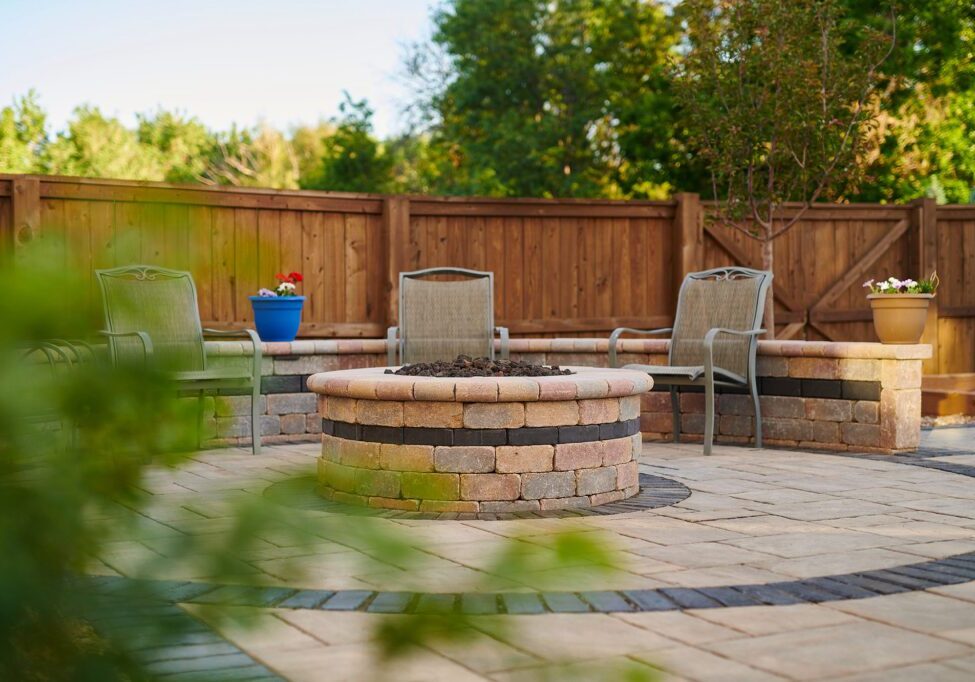A paver patio can be a beautiful and functional addition to your outdoor living space. Pavers are a durable and low-maintenance option that can withstand harsh weather conditions and heavy foot traffic. However, to maintain the look and durability of your paver patio, it’s important to seal it properly. In this blog post, we’ll discuss how often to seal your paver patio, how to power wash it before sealing, and the type of sealer to use.
How Often to Seal Your Paver Patio
Sealing your paver patio helps protect it from stains, color fading, and weather damage. The frequency of sealing depends on the type of sealer you use and the amount of foot traffic your patio receives.
Most experts recommend sealing your paver patio every three to five years. However, if your patio receives heavy foot traffic or is exposed to harsh weather conditions, you may need to seal it more often. It’s important to follow the manufacturer’s instructions for the specific sealer you’re using to determine the appropriate frequency of sealing.
How to Powerwash Your Paver Patio Before Sealing
Before sealing your paver patio, it’s important to properly clean it. Power washing is an effective way to remove dirt, grime, and other debris from the surface of the pavers. However, it’s important to use the proper technique and pressure setting to avoid damaging the pavers.
First, remove any debris from the surface of the patio using a broom or leaf blower. Then, set your power washer to a low or medium pressure setting, usually between 1,500 and 2,500 psi, to avoid damaging the pavers. Hold the nozzle at a 45-degree angle and use a back-and-forth motion to thoroughly clean the surface of the patio. Be sure to avoid directing the water stream directly at the edges of the pavers to prevent damage. If you’re not comfortable using a power washer or don’t have access to one, you can also use a garden hose and a stiff-bristled brush to clean the surface of the pavers.
Type of Sealer for Paver Patio
Choosing the right type of sealer for your paver patio is important for achieving the best results. There are two main types of sealers: film-forming and penetrating.
Film-forming sealers create a protective layer on the surface of the pavers. They are available in both water-based and solvent-based formulas and come in different finishes, such as matte, semi-gloss, and high-gloss. These types of sealers provide a high level of protection from stains and moisture, but they may also alter the appearance of the pavers.
Penetrating sealers are absorbed into the pavers, providing protection from within. They are available in water-based and solvent-based formulas and come in different finishes, such as natural and wet-look. These types of sealers offer a more natural look and feel, but may not provide as much protection against stains and moisture as film-forming sealers.
When choosing a sealer for your paver patio, consider the level of protection you need, the appearance you want to achieve, and the specific characteristics of your pavers. It’s also important to follow the manufacturer’s instructions for the specific sealer you’re using to achieve the best results.
Expert Advice on Sealing Your Paver Patio
If you’re still unsure about sealing your paver patio or need additional guidance, it’s always a good idea to seek advice from an expert. Joe Raboine, Belgard VP of Design, recommends sealing your patio to protect it from damage and extend its lifespan. In his article on Belgard’s website, Raboine discusses the benefits of sealing your paver patio and provides tips on how to choose the right sealer and apply it properly. You can find his article by clicking this link PAVER SEALANT: TO SEAL OR NOT TO SEAL
Overall, sealing your paver patio is an important step in maintaining its durability and appearance. By sealing your patio every few years, power washing it before sealing, and choosing the right type of sealer, you can protect your investment and enjoy your outdoor living space for years to come. If you’re unsure about the process or need additional guidance, seek advice from an expert like Joe Raboine to ensure the best possible outcome.
